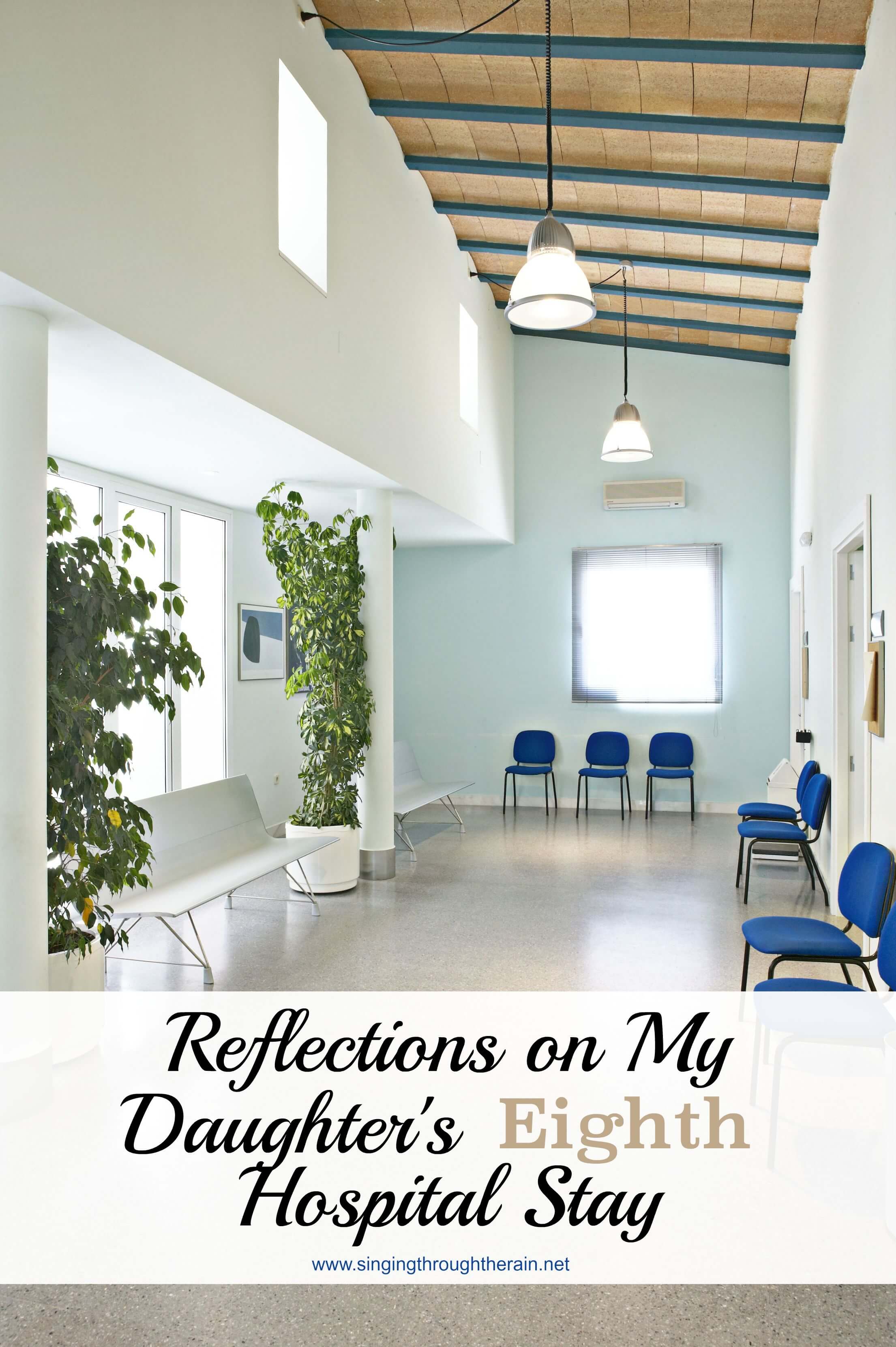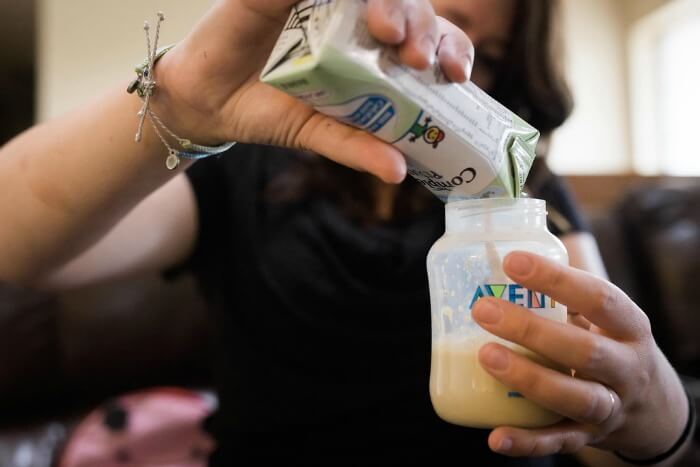Dysautonomia (POTS) in Children: An Introduction
Note: I may earn money or products from the companies, products, or links mentioned in this post.
A while back I wrote about one of my daughter’s main diagnoses, Ehlers-Danlos Syndrome. Today, I want to write about a second main diagnosis she has called, Dysautonomia (POTS). Dysautonomia is a rare disease that usually affects women between the ages of 12-15.

My daughter was diagnosed with Dysautonomia (POTS) when she was 3 or 4, I can’t quite remember her exact age. A lot of times this disease starts in the teen years. 1 in every 100 teens is affected by POTS.
What is Dysautonomia?
Dysautonomia is a dysfunction of the autonomic nervous system.

The autonomic nervous system controls everything we do without thinking about it. It involuntarily controls breathing, heart rate, blood pressure, body temperature, and digestion. When the autonomic nervous system isn’t regulated, it doesn’t work correctly. This causes the following symptoms:
- Palpitations
- Premature Ventricular Contractions (PVCs)
- Tachycardia
- Bradycardia
- Chest Pain
- Shortness of Breath
- High Blood Pressure
- Low Blood Pressure
- Brain Fog
- Confusion
- Difficulty Thinking
- Headaches & Migraines
- Blurred Vision
- Anxiety
- Dizziness
- Fainting
- Weakness
- Tremors
- Neuropathy
- Bloating
- Nausea
- Vomiting
- Irritable Bowel Syndrome
- Abdominal pain
- Constipation
- Reduced food intake
- Malnutrition
- Bladder Dysfunction
- Urinary Incontinence
- Low or no urine output
- Increased Urination
- Chronic Fatigue
- Insomnia
- Exercise Intolerance
- Chronic Pain
- Sensitive to Temperature
- Heat & Cold Intolerance
- Sweating Abnormalities
- Excessive Sweating
- No Sweating
- Exercise intolerance
- Muscle Cramps/Spasms
- Dry Mouth
How I’ve Seen Dysautonomia (POTS) Symptoms Manifest
My daughter, Lizzie, has had almost all of the above symptoms at one time or another. Since she has Ehlers-Danlos, it’s hard to know what symptoms are from that and which are from POTS since they overlap when it comes to symptoms.
Palpitations, PVCs, Tachycardia, & Bradycardia
This past February, my daughter wore a Holter monitor for 8 days. Her heart rate variability during this time was between 49 bpm to 210 bpm. The doctor said this is consistent for patients who have Dysautonomia (POTS), however, I cannot imagine having my heart jump around that much. I can only imagine how my daughter feels!
Her cardiac symptoms tend to get worse after she goes under anesthesia. This past January, she had emergency surgery and her heart rate hit 40 bpm. She was also having palpitations for days afterward which can be painful. Unfortantely, I am on a beta blocker for some similar symptoms so I am familar with how painful it can be.
High Blood Pressure & Low Blood Pressure
My daughter tends to have low blood pressure, but there have been a few times it was high. As an example, the other day, she was having a flare and her blood pressure was 68 over 43. Usually, you want your blood pressure, above 90 over 60.
Brain Fog, Confusion, Difficulty, & Thinking
These symptoms are really tough. They make my daughter frustrated and she has a hard time listening, focusing, answering questions, and remembering basic things sometimes. She will zone out or just seem “off” during these times. Her memory also seems to be affected during these symptoms. She normally has an incredible memory, but during flares she has lost whole conversations and moments due to memory lapses.
Headaches & Migraines
Just this year she started having migraines. They come on so suddenly and are so painful, it was surprising. Thankfully, we’ve found for now that Tylenol and Motrin really help.
Anxiety
My daughter has pretty severe anxiety. She was started on some medication over the summer to help because it was affecting every aspect of her life. Some of this is from Dysautonomia (POTS), but she also has a lot of anxiety and PTSD from all of her medical trauma and hospitalizations.
Fainting, Weakness, Tremors, & Neuropathy
Lizzie has not fainted, however, she did have an episode this year where we think she blacked out for a moment. Some doctors think it could have been a seizure, but there is really no way of knowing. She has had several episodes of weakness where she says her legs feel “heavy” or she feels like it’s too much work to move and will lay on the couch, but she is very active so we have only seen that a few times.
Once when her OT was working with her, she noticed a tremor in her hands and we’ve started seeing it often as well. It’s hard to see it unless she tries to keep her hands very still, but we have gotten it on video before to show the doctor.
Last year, she started having these episodes she called “spiders.” She would cry and say it felt like spiders were crawling on her legs or arms or all over her body. There was never anything there so we asked her to show us what it felt like and she would pinch my arm really hard. We are thinking it’s like the pins and needles feeling you get when your foot falls asleep. The doctor said it was neuropathy.
Bloating, Nausea, Vomiting, Abdominal pain, Constipation, & Reduced food intake
My daughter has all the above and tends to have a lot of GI symptoms in general. The hard part is knowing what exactly is causing it. Is it the Ehlers-Danlos? The POTS? Gastroparesis? Something else?
Because she does have Gastroparesis, it makes her Dysautonomia (POTS) much harder to control and treat. She has a feeding tube to help with food and fluid, but even with that, it’s sometimes hard to meet the minimum goals for calories and fluid intake.
Bladder Dysfunction, Urinary Incontinence, & Low or no urine output
Over the past year or two, we have noticed more of these symptoms in my daughter. We were referred to pelvic floor therapy because she was having accidents and didn’t even seem to notice when it happened.
Her home health nurse tracks how many times she goes during the day and there have been many days where she has only gone once all day long. Recently, when she was sick, she had a day where she didn’t go at all.
Chronic Fatigue & Insomnia
My daughter has a lot of sleep problems and these come with several other of her diagnoses as well. She currently takes multiple medications just to help her sleep at all. A recent EEG showed she doesn’t always hit REM either. So her quality of sleep is not great.
Sensitive to Temperature & Heat & Cold Intolerance
Lizzie seems to be more sensitive to heat than cold, but she definitely will have some symptoms if she is outside too long in the cold or if she is in the snow without any snowsuit or gloves. One of the things we’ve seen, for example, is when her skin turned bright red all over her body. She looked like she had a bad sunburn and then when it went away an hour later, we realized the heat had affected her pretty badly. When the temperature is too hot, she can only have limited time outside.
One time when our air conditioner went out, her body temperature hit 102.5. We ended up having to take her out of the house and into an air-conditioned store or restaurant until we could get an air conditioner for her window.
This past summer, we went to an outdoor bounce house park and stayed for 1-2 hours. My kids had a ton of fun. Unfortunately, the next 3-4 days were awful for her as her body reacted to being in the heat for so long. We use a cooling cloth to help cool her down fast!
Muscle Cramps/Spasms & Dry Mouth
These are signs of dehydration that can come with Dysautonomia (POTS). My daughter has both. She also tends to have a dry mouth because she can’t drink as much as a typical person does on a daily basis.
What is POTS?
POTS stands for Postural Orthostatic Tachycardia Syndrome and is a sub-type of Dysautonomia. POTS is considered a blood circulation disorder.
- Postural – The posture or position of the body
- Orthostatic – Dizziness
- Tachycardia – A heart rate that’s too fast
People who have POTS cannot properly control blood flow and blood volume. This causes the symptoms above to occur, usually when standing up (My daughter has symptoms throughout the entire day, not just when she stands or lays down). This happens due to gravity. So when someone with POTS stands, the blood pools down to the lower half of their body causing the organs in the higher half of the body to starve from lack of oxygenated blood.
In response, your body releases hormones like epinephrine that tighten blood vessels, increasing your heart rate. Combined with a lack of blood reaching your brain, the result is dizziness, confusion, and sometimes fainting.
Next time, we will talk about the treatment for POTS, why POTS patients get dehydrated, and how all this works for my daughter. So stay-tuned!
What about YOU? Have you heard of Dysautonomia or POTS before?









